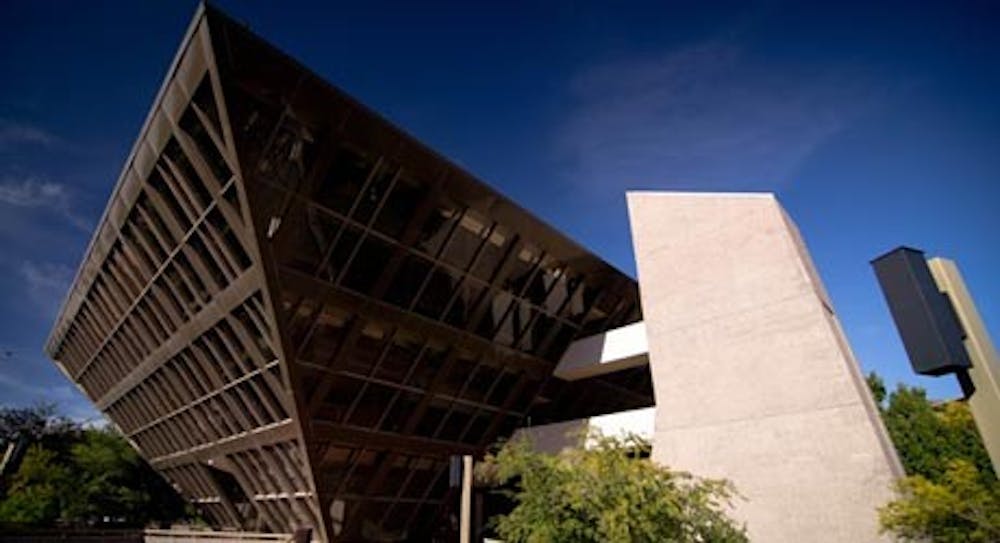After a year of tough economic challenges, possible changes to the way cities get money from the state could leave Tempe facing new problems in the next year.
With the state’s projected $825 million deficit for the next fiscal year, lawmakers have discussed ending the agreement in which the state and cities share revenue.
Tempe is currently slated to receive $42 million from the state next year, but city officials believe this could get cut to help balance the state’s budget.
“Sources tell us this is because of the huge deficit the state is facing,” said Tempe councilwoman Onnie Shekerjian, adding that this will be one of Tempe’s biggest challenges in the near future.
Temporary fixes and attempts to balance the budget have city officials worried that the state will keep the revenues that are usually shared with cities.
In 1972, voters approved a ballot measure that banned cities from levying income taxes and also put restrictions on local property taxes. In doing so the state agreed to share some of the statewide tax revenue with cities, establishing the concept of shared revenues.
This collaboration between the state and 84 municipalities has created tension in recent years.
In his State of the City address, Tempe Mayor Hugh Hallman stated that certain state legislators argue that the state should disregard the agreement and keep the revenue.
Tempe gets revenue from two main sources — the state’s shared revenue and the city’s sales tax, Shekerjian said. A very small amount of revenue is also collected through property taxes. Most cities rely on the shared revenues for 40 percent of their general funds.
To determine how much each city will get, the state calculates the population of growth in each city in relation to the state, Shekerjian said.
Tempe and other cities are scheduled to receive fewer funds because of two ballot measures that did not pass in last month’s elections.
The first was Proposition 110, which would have made it legal to sell state land or place restrictions on the use of state land for military purposes.
The second was Proposition 302, which would have moved $345 million from First Things First, an early childhood development program, into a general fund, as well as revenue from the 80-cent tobacco tax that supports the program.
“They had already planned for at least First Things First [to pass] in their preliminary budget,” Shekerjian said. “Now the budget deficit will be even larger.”
As a whole, the state only has control of about 30 percent of its budget, she said. The state currently controls funds for education, state shared revenue, prison funds and the state’s Medicaid agency. Beyond these, the state doesn’t control a lot of its spending.
“They aren’t trying to pick on cities and towns,” Shekerjian said. “They really don’t have places they can pull money without raising taxes in order to balance the budget.”
In its efforts to cut costs, Tempe has eliminated more than 250 city positions, reducing total spending by more than $18 million.
A large part of Tempe’s reserve money was spent on voluntary separation packages, which ensured that employees were either placed somewhere else within the city or able to leave on their own regard. Of these positions, only six people could not be placed.
Development, one of the city’s largest departments, has seen a 35 percent reduction in staff since 2007, said Chris Anaradian, Tempe’s community development director.
“This is highly correlated with the economy,” he said. “It is different from police and fire departments.”
In the past, Tempe has been criticized for keeping so much money in reserve, Shekerjian said. Many employee groups felt the money should be spent on employees. Tempe is allowed to keep 10 to 15 percent of its operations costs, and had about 30 percent saved in reserves when it began to cut employees.
“We saved our money when times were good, and as a result were able to offer these extra bonuses to retire early,” Shekerjian said. “Employees were given over a year’s notice.”
If the state Legislature cuts shared revenues, the city of Tempe would need to continue to cut up to $16 million in city services, Hallman said in his address. This would affect important services to the city including police officers, firefighters, library hours, recreation and after-school programs.
Reach the reporter at amoswalt@asu.edu





